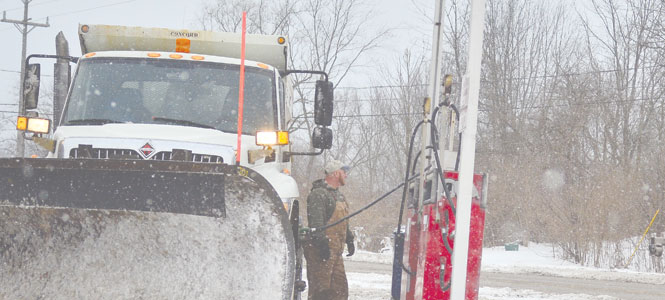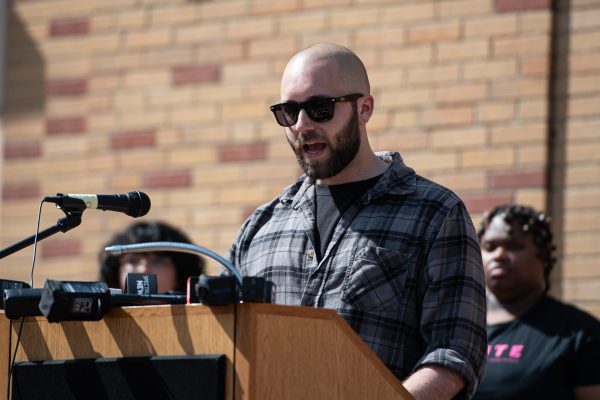How officials determine whether to cancel classes
January 19, 2012
Once the snow and temperatures start falling, almost every Kent State student has one thought: “I wonder if we’ll get a snow day.”
While a few inches of snow or a chilly night may seem worthy of canceling classes, the university officials who make that call have to carefully decide which days can be snow days.
Tom Euclid, associate vice president of facilities planning and operation, said, most students do not understand how big of a decision canceling classes is.
“If you cancel class at a college, you can’t make it up,” Euclid said. “It’s lost, and that impacts everybody’s ability to learn. That’s done as a last resort. If it’s unsafe for people to get to class, then that’s what prompts a cancelation.”
So when the weather outside is frightful, Euclid and other university officials pull information from several sources to ensure students’ safety without wasting a class.
Clearing the campus
Once two inches of snow have fallen, Roy Christian, director of operations and university facilities manager, sends all grounds and operations crews to begin snow removal on campus.
“What we do is try to forecast the events and be as proactive as we can and have people here at the start of the event, so we can maintain arteries within the university,” Christian said. “Until someone makes the decision to close the university, we do whatever’s necessary to maintain the arteries and keep them as open as possible.”
These “arteries” are any areas on campus that receive a lot of traffic: parking lots, sidewalks and streets throughout campus.
Covering the Bases
If the clean up happens overnight and the weather seems to be getting worse, Euclid calls John Peach, director of public safety and chief for the Kent State Police Department, to determine if classes should be canceled. Gregg Floyd, senior vice president for finance and administration, makes the final decision.
These calls usually start at 4:30 a.m., and the goal is to reach a decision before 5 a.m.
“We want people who are starting to get ready to drive to class from, say, Cleveland to have their notice before they get on the road,” Euclid explained.
Peach gathers information from the police dispatchers and state highway patrols to determine if the roads on and around campus are safe. There are four main areas of concern: on-campus roadways, sidewalks and doorways, parking lots and major roadways.
After talking to Peach, Euclid calls Christian to see how things are going on campus. Euclid said he is looking to see if the parking lots and sidewalks are clear and if the maintenance staff can keep it up.
“If we can make a decision based on how things are at the time of the phone call, it’s OK,” Peach said. “But trying to project hours ahead when people are coming to campus is very difficult sometimes.”
Getting it right
While there are a lot of areas to consider when making this decision, the officials do not have any set rules about what limits must be reached for a snow day to occur.
“There aren’t any specifics,” Peach said. “If we start using a matrix, we’ll find more variables to add. It’s not a science, but it is somewhat of an art.”
Peach said sometimes the decision can get tricky, so they try to break up the day by morning, afternoon and evening classes.
“All we have is the national weather forecast and the local weather forecast,” Peach said. “And you may find this shocking, but they’re not always correct.”
The officials may not always be correct either, but Peach said they generally do what is best to ensure students can safely get to and from class.
“It’s one of the most difficult decisions because people can criticize you on both sides,” said Peach. “We just do the best we can do and move on.”
Contact Rachel Jones at [email protected].
























